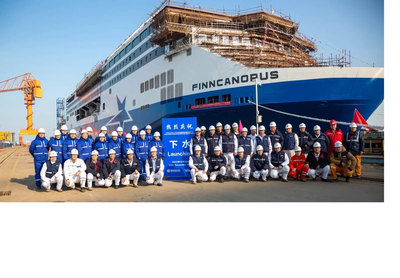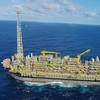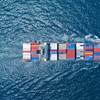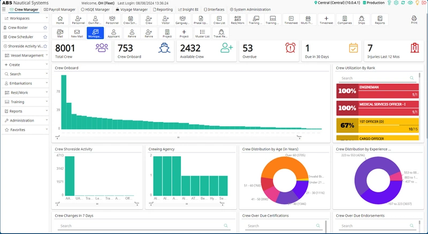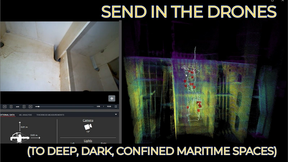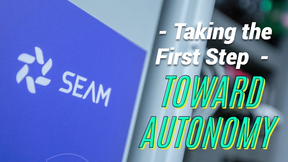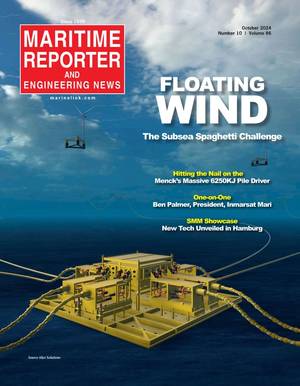Finnlines’ Second New Superstar RoPax Vessel Launched
Finnlines’ second new Superstar passenger-freight vessel, Finncanopus, was launched on Friday at the China Merchants Jinling Shipyard in Weihai.
The new Superstar class ro-pax vessels, along with sister vessel Finnsirius launched in August 2022—both part of Finnlines’ €500-million investment program—will enter service in 2023, serving the Naantali–Långnäs–Kapellskär route between Finland, Åland Islands and Sweden.
Both vessels have capacity for 1,100 passengers, which is the double compared with the current vessels on the route. Each vessel has 323 passenger cabins and 64 crew cabins. Freight capacity will also increase from around 4,000 lane meters to 5,200, equivalent to 250 trucks and 200 cars.
“Regular and reliable freight traffic in the Baltic Sea is the backbone of the region’s economies and national security of supply. The maritime bridge between Finland and Sweden is one of the three connections in Finland important to trade and industry. Around 90% of the Finnish and Swedish exports and imports are carried seaways. Our service has been very important for our customers. Increasing cargo and passenger capacity and improving passenger comfort on the route will strengthen the service,” said Tom Pippingsköld, President and CEO of Finnlines.
According to Finnlines, the vessels are as emission-free as possible, equipped with air lubrication systems that create air bubbles to reduce friction and hydrodynamic resistance. The onshore power supply will provide an alternative source of energy and it will not be necessary to run auxiliary engines, which reduces emissions and noise. A high-powered battery bank will be charged in port and generate power at sea. Two-speed reduction gears will improve propulsion efficiency and save fuel. Environmentally friendly oils will be used in bow thrusters, fin stabilizers and in the cargo access equipment.
Green values are also prioritized in the design of the shipboard facilities and services, Finnlines said. As an example, lighting and ventilation can be adjusted automatically in the accommodation, which reduces energy consumption. Recycled material is used in furniture. Printed materials, such as menus, travel programs and price lists, are replaced by digital screens and mobile apps. Furthermore, local suppliers will be favored, which means shorter transport distances.
“Innovative technologies will ensure that people and goods are transported reliably and sustainably and Finnlines is prepared to comply with new regulations and meet new challenges,” Pippingsköld said.



